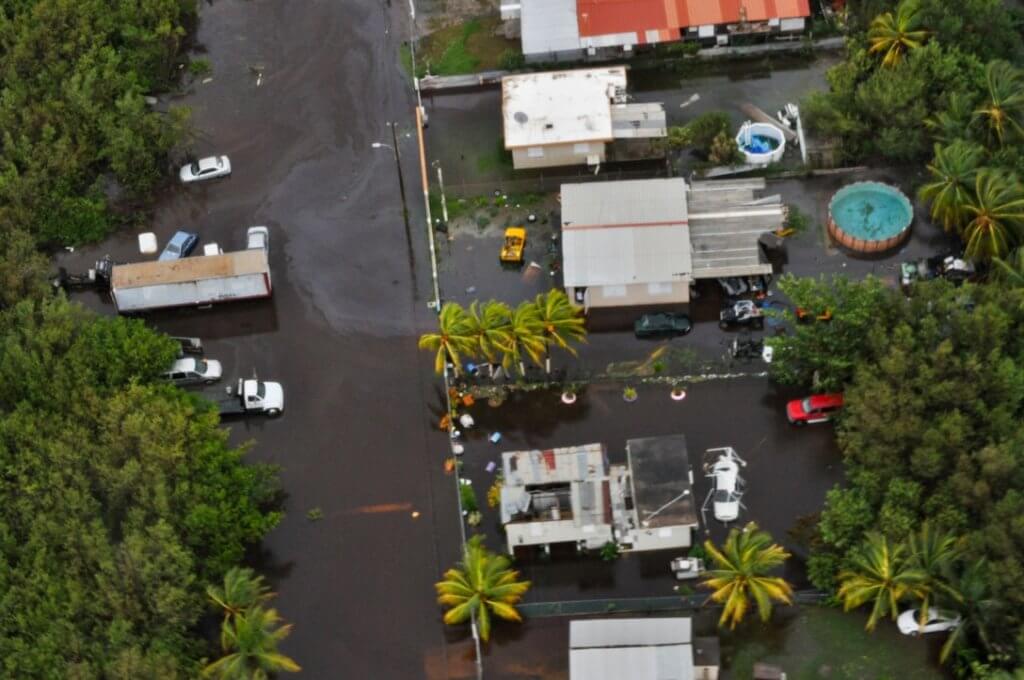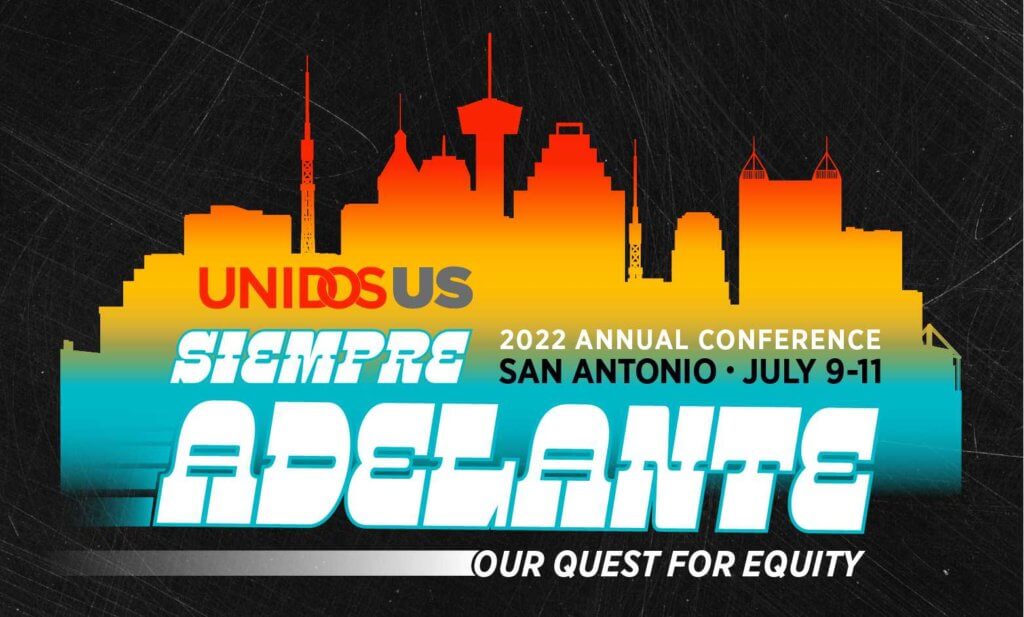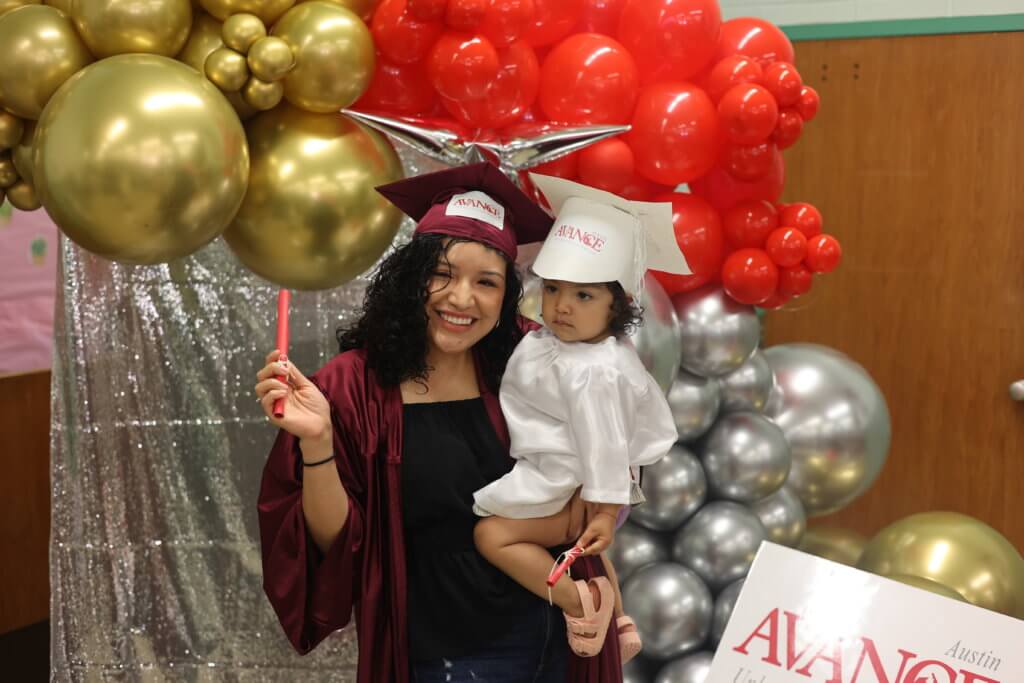Understanding the Culture of Health: Our Affiliates work to keep our communities healthy and vibrant
As David Adame, President and CEO of UnidosUS Affiliate Chicanos Por La Causa (CPLC), put it, the term “social determinants of health” can be interpreted as “wraparound services: “We know that, in order to help people be self-sufficient, we have to provide them with other resources and capacity,” Adame explains of the services the organization offers.
CPLC has become a model for best practices in how housing influences health outcomes. Their Director of Supportive Housing Services Nikki Ramirez accompanied us in the first UnidosUS Health and Housing Roundtable, hosted in Washington, DC, at the end of October.
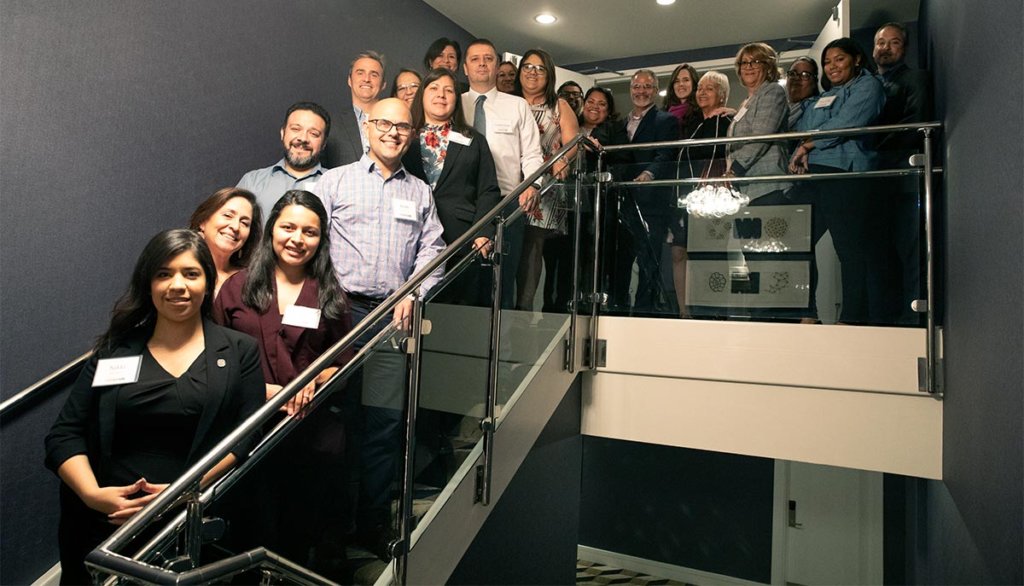
By Beatriz Paniego-Béjar, Content Specialist at UnidosUS
Earlier this year, UnidosUS conducted an assessment among our Affiliates about the social determinants of health. The goal was to collect information about the understanding our Affiliates have of the culture of health framework, the idea that where we live—our access to affordable and stable homes, healthy food, quality schools, and reliable transportation—make a difference in our opportunities to be healthy and thrive. With the support of the Robert Wood Johnson Foundation, we were able to find the needs and assets UnidosUS’s Affiliates have to strengthen their culture of health work in the Latino community. Out of this assessment, the first Health and Housing Roundtable was envisioned.
THE PARTNERSHIP BETWEEN A HEALTH INSURANCE COMPANY AND A COMMUNITY DEVELOPMENT CORPORATION
Fourteen UnidosUS Affiliates working in the housing space gathered on October 23 and 24 to learn about the social determinants of health and its intersection with health equity and housing, providing a unique opportunity to introduce new concepts and a framework for the work they are already doing in a peer-to-peer learning experience.
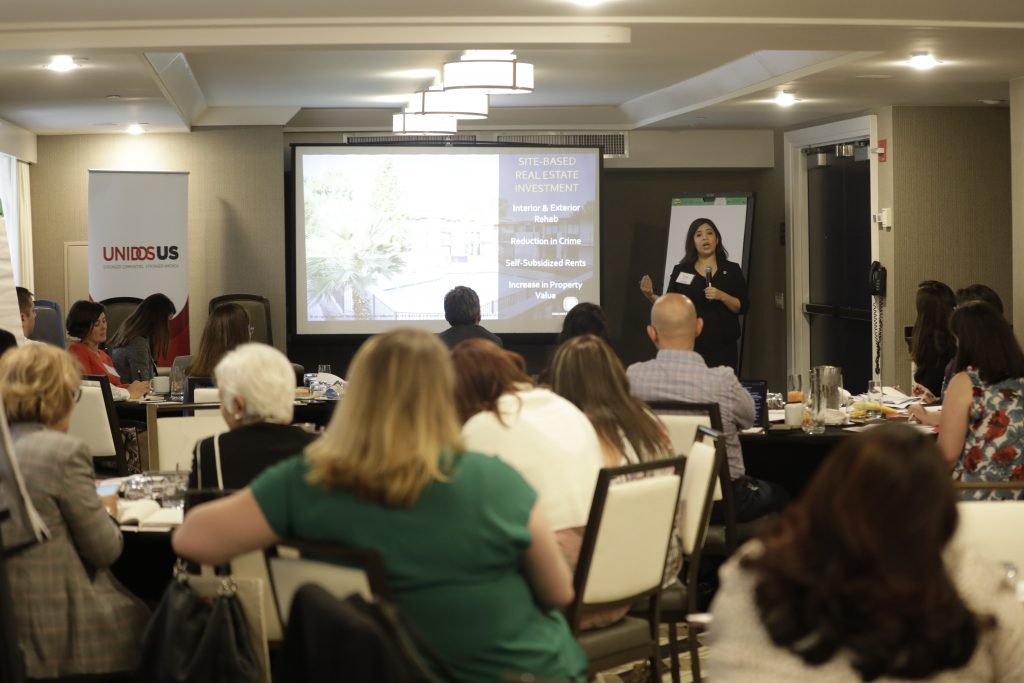
When Nikki Ramirez presented the work CPLC is doing in Maryvale, Arizona, the room was impressed and inspired. Since 2016, CPLC, a community development corporation, has partnered with the health insurance company UnitedHealthcare. Thanks to this partnership, they purchased a 351-unit apartment complex, with 22 buildings, that year. This complex had the highest crime rate in the area, but after a $22 million investment and nine months of committed property management, crime dropped drastically. Ramirez shared the struggles, and how much relationship-building needed to be done for this project to be successful.
Once they were ready, CPLC was able to self-subsidize the rent of 20% of the units. Those apartments were offered at a 50% discounted rate: they are self-subsidized through CPLC’s operating funds because the other 80% of the homes are market-rate units, rented to everybody and anybody that qualifies. “The set-aside units are set aside specifically for members of the health care partner,” Ramirez continues.
Thanks to the rehabilitation of this complex, CPLC has been able to provide stable housing to clients suffering from substance-abuse, mental-health issues, and chronic illnesses such as diabetes: “These individuals were experiencing homelessness, but they wanted to live and could live independently, and if we got them into housing, housing stabilizes them and our health partners are able to bring care into the home,” she shared.
Once they are housed, it takes almost a year for a person that enters the program at CPLC to graduate, meaning that they don’t need support systems anymore and that they’ve increased their income. At this point, they can either leave the property to find another place where they’d like to live, or stay in the complex but pay the market price for that home: “That’s home for them, they like where they live,” Ramirez explains. If that is the case, CPLC simply turns another unit in the complex into a subsidized unit.
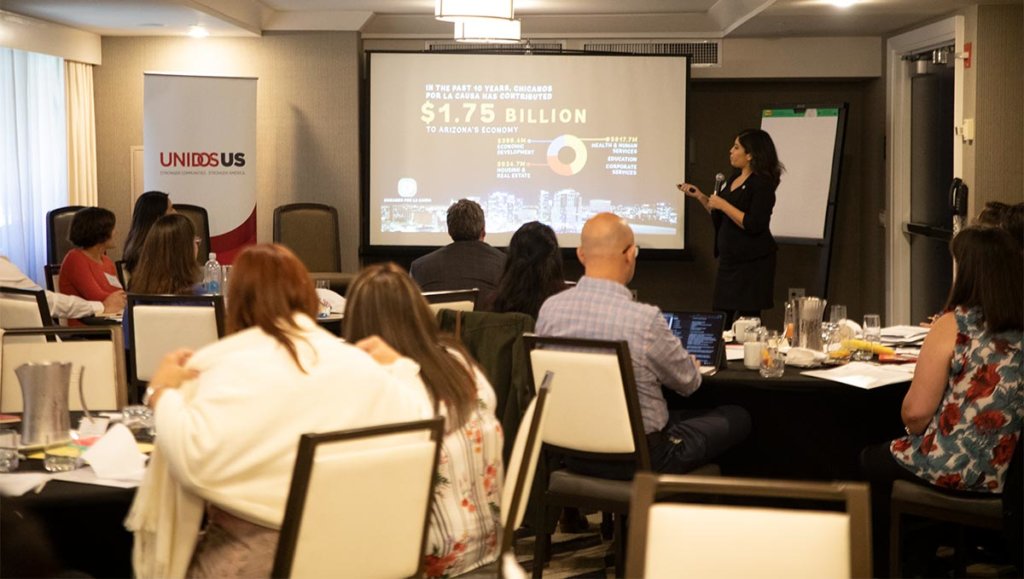
COMBINING HEALTH AND HOUSING SERVICES
During this roundtable, attendees also heard from two Chicago community-based organizations that combined their health and housing efforts through a social justice and community organizing lens. These examples are representative of how UnidosUS Affiliate Network build on the culture of health movement and address the social determinants of health.
Northwest Side Housing Center (NWSHC) introduced the health lenses through their trauma-informed work, realizing the impact their foreclosure clients had going through this process: “There were a lot of severe health issues that they were having,” Julio Rodriguez, Director of Community Development, explained. “In one case, this family was able to save their home, but one of the borrowers was diabetic and he ended up losing his leg before they got the modification, and this was because of stress.”
NWSHC is thinking about about how they can bring low-cost/free health care to their community, so the lack of resources that takes their families to be in danger of foreclosure doesn’t affect their access to health care.
When Brighton Park Neighborhood Council Executive Director Patrick Brosnan learned that their neighborhood is one of the most medically underserved communities in Chicago and in all of Illinois, he knew they had to work on health care issues. The first step was to work with the University of Illinois at Chicago to build a school-based health center; simultaneously, they worked with other health partners, helping expand their capacity and making sure they are part of the Brighton Park neighborhood.
BPNC is also working through their promotores de salud (community health workers) to organize health and nutrition workshops and using that infrastructure to bring their housing counseling and financial wellness team to provide weekly classes for the community they are already serving.
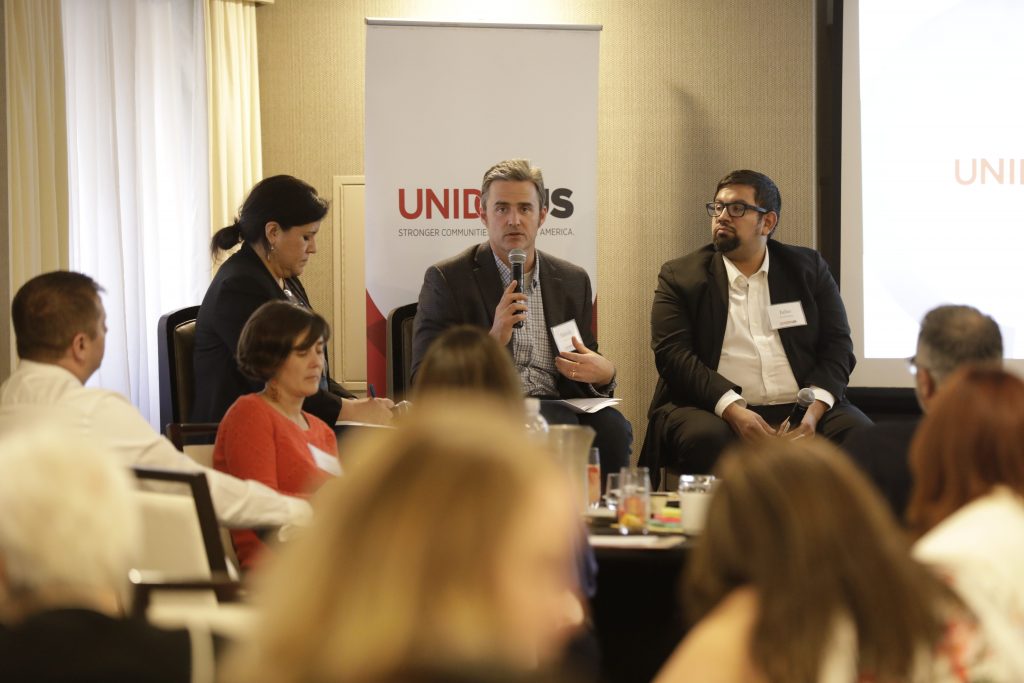
MAKING THE CONNECTION
Learning from Justin Rivas, Network Strategist at County Health Rankings and Roadmaps (CHRR), about power mapping, CHRR data tools and how to find specific statistics for their communities were some other of the sessions at this roundtable.
Rivas explained how CHRR provides the language for our Affiliates to feel as comfortable speaking about health issues as they feel in the housing space. He also helped the participants craft a persuasive message using a health-angle to make people—also funders—understand the connection between housing and health: “It is not a political message, but to call attention on the issue, and bring urgency to it,” Rivas stated.
A goal-setting and brainstorming session, followed by a reflection, closed up the first UnidosUS Health and Housing Roundtable, and the reactions of our Affiliates speak for themselves:
Brendinelle Lopez, Manager of Housing Counseling at Congreso de Latinos Unidos (Philadelphia, Pennsylvania)
As a house counselor working on foreclosure, the focus is on how I can help you in keeping your home. I never took a step back and asked: “Are you having any health problems, how’s your health, is this causing you stress, is stress causing you other conditions.” So now, I am going to take that step back and look at the full picture and help you holistically.
Carmen Cosme, Executive Director at One Stop Career Center of Puerto Rico (San Juan, Puerto Rico)
We’ve seen once again that the wraparound-service organizations are important in our communities, where we can offer employment, housing, health and education, and where counselors are key.
Patrick Brosnan, Brighton Park Neighborhood Council (Chicago, Illinois)
I really enjoyed the research tools. Learning about the county-wide data related to health. I already texted the tools to a couple of our team members doing this work, and they are already looking into it and excited about it, starting to understand the data better.
Nilsa López Rivera, Founder and CEO of Corporación Desarrollo Económico, Vivienda y Salud (San Juan, Puerto Rico)
From this roundtable we take away learning and a lot of emotions. It’s very interesting listening to your colleagues, the doubts they have: you can tell the interest they have in helping one another, of reconsidering a lot of the things we are doing to improve the service.
Eric Chavez, Homeownership Outreach & Counseling Services at Communities Services of Nevada (Las Vegas, Nevada)
It was a great opportunity to learn how to create change in what we do day-to-day.
Ninoshka Montas, Social Worker at Congreso de Latinos Unidos (Philadelphia, Pennsylvania)
What I am taking away is the important piece on how health and housing do have a connection, and how it is very important for people to have safe, secure and affordable housing, and how having that contributes to and affects their health overall in a holistic way.
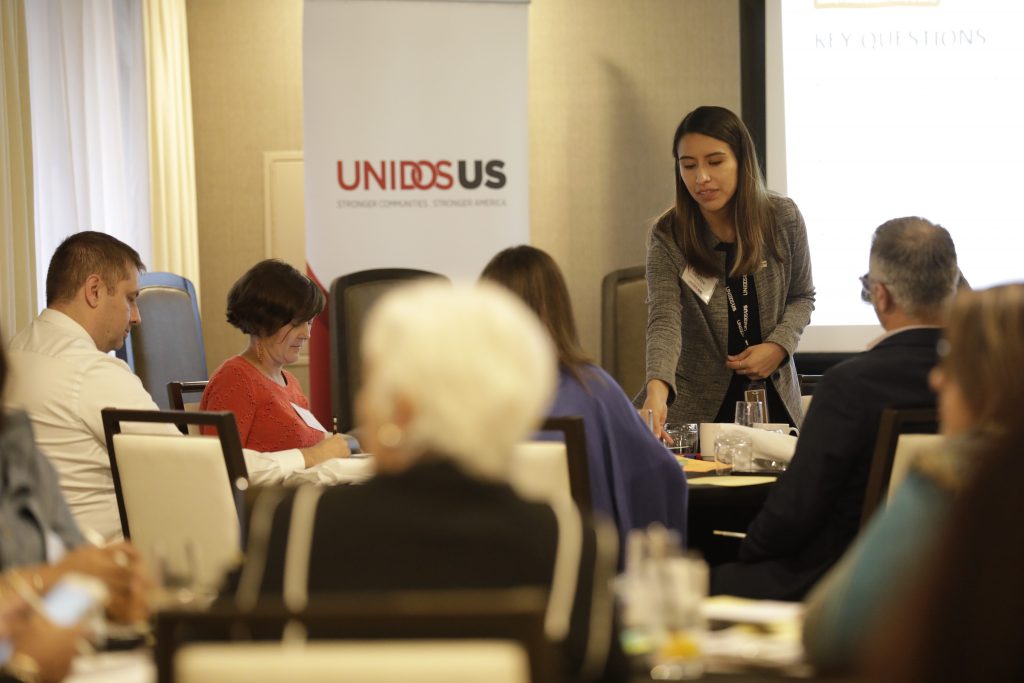
The UnidosUS Health team also felt fulfilled with the roundtable:
“Personally, I feel inspired by the thought-sharing and collective learning that happened during the event with our housing leaders,” Selene Tituaña, UnidosUS Health Program Specialist, shared. “Based on participants’ feedback, we aim to shape future conversations that will be beneficial for our housing Affiliates to engage in as we move forward toward building a culture of health.”
If you want to learn more about this work, please email Selene Tituaña at [email protected].
